Build Resilience In Personal Relationships: Top 10 Ways
Have you ever found yourself feeling drained and emotionally exhausted after a conflict in your personal relationships? It’s a common experience, but luckily, there are ways to build resilience and bounce back stronger in your personal relationships.
In this article, you’ll discover six practical tips that can help you strengthen your relationships and navigate through challenges with grace and strength. From effective communication to embracing vulnerability, these strategies will empower you to cultivate resilience.
They will help you create healthier connections with your loved ones. So, if you’re ready to transform your relationships and develop a stronger emotional foundation, let’s dive into these six key ways to build resilience in personal relationships.
1. Recognize And Manage Emotions
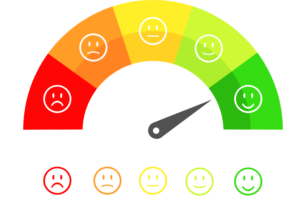
Acknowledge Your Own Feelings
In order to build healthy and resilient personal relationships, it is crucial to first acknowledge and understand your own emotions. This means taking the time to identify how you feel and giving yourself permission to experience and express those emotions.
Whether it’s happiness, sadness, anger, or any other emotion, recognizing and accepting your feelings allows you to be more authentic in your relationships.
Practice Self-Awareness
Self-awareness is a key component of emotional intelligence and plays a vital role in building resilient relationships. Being self-aware means understanding your own strengths, weaknesses, preferences, and triggers.
By developing this self-knowledge, you can better manage your emotions and communicate effectively with others. It enables you to take responsibility for your own actions and responses, reducing the likelihood of unnecessary conflicts or misunderstandings.
Develop Emotional Intelligence
Emotional intelligence refers to the ability to recognize and understand both your own emotions and those of others. By cultivating emotional intelligence, you can build stronger, more empathetic relationships.
This involves being aware of the emotions of others, practicing active listening, and responding in a sensitive and compassionate manner. Emotional intelligence allows you to navigate through disagreements, offer support, and foster a deeper connection with your loved ones.
2. Build Effective Communication Skills

Active Listening
Effective communication is a cornerstone of any resilient relationship, and active listening is a crucial skill to develop. When engaging in active listening, you give your full attention to the speaker and make a genuine effort to understand their perspective.
This means maintaining eye contact, avoiding interruptions, and asking clarifying questions. By actively listening, you demonstrate respect and create a safe space for open and honest communication.
Expressing Thoughts And Feelings Calmly
In order to build resilience in personal relationships, it is important to express your thoughts and feelings calmly and assertively. This involves using a non-confrontational tone, avoiding blame or criticism, and using “I” statements to express your emotions.
By expressing yourself calmly, you foster an environment of understanding and collaboration, allowing both parties to feel heard and valued.
Using ‘I’ Statements
Using “I” statements is an effective communication technique that helps to express your emotions and needs without coming across as accusatory or confrontational.
Instead of saying, “You always make me feel neglected,” you can say, “I feel neglected when we don’t spend quality time together.” By framing your statements with “I,” you take ownership of your own emotions and invite the other person to respond in a more positive and constructive way.
Being Open To Feedback
Resilient relationships require a willingness to receive and act upon feedback from your loved ones. Being open to feedback shows that you value the other person’s perspective and are willing to work on improving yourself and the relationship.
Constructive feedback can provide valuable insights and opportunities for growth. However, it is important to approach feedback with an open mind and avoid becoming defensive or dismissive.
Resolving Conflicts Constructively
Conflicts are a natural part of any relationship, but how they are resolved can either strengthen or weaken the bond between individuals. Resilient relationships involve approaching conflicts with a solution-oriented mindset, focusing on understanding and compromise rather than winning or being right.
This requires active listening, empathy, and a willingness to find common ground. By resolving conflicts constructively, you can foster a healthier and more resilient relationship.
3. Nurture Trust And Honesty

Be Reliable And Consistent
Trust is the foundation of any strong and resilient relationship. To nurture trust, it is important to be reliable and consistent in your actions and words.
This means following through on your commitments, being punctual, and being true to your promises. By demonstrating reliability, you show that you can be trusted and relied upon, creating a sense of security and stability in the relationship.
Maintain Confidentiality
Confidentiality is another important aspect of building trust and resilience in personal relationships. Respecting the privacy and boundaries of others ensures that they feel safe and comfortable sharing their thoughts, feelings, and experiences with you.
Avoid sharing personal information or secrets entrusted to you, unless explicitly given permission. By honoring confidentiality, you foster an environment of trust and mutual respect.
Be Truthful And Avoid Deception
Honesty is a fundamental pillar of resilient relationships. Being truthful and transparent not only enhances trust but also promotes open communication and understanding.
Avoiding deception, such as lying or concealing information, helps to maintain the integrity of the relationship. Being honest, even when it’s difficult, allows for more genuine and authentic connections.
Apologize And Make Amends
Inevitably, mistakes and misunderstandings occur in relationships. When you realize that you have hurt or wronged someone, it is important to apologize sincerely and take steps to make amends.
This involves taking responsibility for your actions, expressing genuine remorse, and actively working to rectify the situation. By apologizing and making amends, you demonstrate your commitment to the relationship and help rebuild trust.
Avoid Blame And Defensiveness
Blaming others and becoming defensive can hinder the growth and resilience of a relationship. Instead of pointing fingers or deflecting responsibility, strive to take a collaborative approach when addressing issues.
By reframing conflicts as opportunities for growth and working together towards solutions, you can create a safe space for open communication and problem-solving.
4. Cultivate Empathy And Compassion

Put Yourself In The Other Person’s Shoes
Empathy is the ability to understand and share the feelings of another person. Cultivating empathy involves putting yourself in the other person’s shoes and trying to view situations from their perspective.
This allows you to better understand their emotions, experiences, and needs, fostering a deeper connection and increasing resilience in the relationship. Empathy shows that you care and validates the other person’s feelings.
Practice Active Empathy
Active empathy goes beyond understanding and extends to taking action to support and comfort others. It involves actively seeking to alleviate their distress or difficulties.
This can be done through kind gestures, offering assistance, or simply lending a listening ear. By practicing active empathy, you demonstrate your commitment to the well-being of the other person and create a supportive and resilient bond.
Show Understanding And Support
Building resilience in personal relationships involves being understanding and supportive of the other person’s struggles and challenges. This means not dismissing their emotions or minimizing their experiences.
Instead, actively listen, validate their feelings, and offer support when needed. By showing understanding and support, you create a safe environment for vulnerability and strengthen the bond between you.
Be Kind And Caring
Kindness and caring are essential in fostering resilience and maintaining strong personal relationships. Small acts of kindness and gestures of care, such as offering words of encouragement or doing something thoughtful for the other person, go a long way in building a resilient bond.
By consistently demonstrating kindness and care, you create a positive and nurturing environment that encourages growth and strengthens the relationship.
Offer Help And Assistance
Being supportive in practical ways can make a significant difference in building resilience in personal relationships. Offering help and assistance, whether it’s lending a hand with chores, providing emotional support during difficult times, or offering guidance and advice, shows that you are invested in the other person’s well-being.
By offering help and assistance, you foster a sense of teamwork and create a stronger foundation for the relationship.
5. Develop Problem-Solving Skills
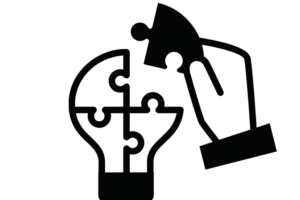
Identify And Define The Problem
Problem-solving skills are crucial for building resilience in personal relationships. The first step in effective problem-solving is to identify and define the problem.
This involves clearly articulating the issue at hand and ensuring that both parties have a shared understanding of the problem. By accurately defining the problem, you can focus your efforts on finding a solution that addresses the root cause.
Brainstorm Potential Solutions
Once the problem is identified, it is important to engage in a collaborative process of brainstorming potential solutions. Encourage open and creative thinking, and generate a variety of ideas without judgment.
This allows for a diverse range of perspectives and increases the likelihood of finding an effective solution. By actively involving both parties in the brainstorming process, you foster a spirit of collaboration and teamwork.
Evaluate The Pros And Cons
After generating potential solutions, it is necessary to evaluate the pros and cons of each option. Consider the potential benefits and drawbacks of each solution and weigh them against each other.
This evaluation process helps in selecting the most appropriate and effective solution for the given situation. By carefully evaluating the pros and cons, you ensure that the solution addresses the underlying issue while considering the potential consequences.
Choose The Most Effective Solution
Based on the evaluation of potential solutions, it is time to choose the most effective one. Select the solution that best aligns with the shared goals and values of both parties and offers the highest likelihood of resolving the problem.
It is essential to agree on the chosen solution together. By choosing the most effective solution collaboratively, you foster a sense of ownership and commitment to the resolution.
Implement And Adapt As Needed
Once a solution is selected, it is important to implement it and monitor its effectiveness. Adaptation and flexibility may be necessary throughout the process.
It is crucial to communicate openly and honestly, provide feedback, and make adjustments as needed. By implementing and adapting the chosen solution, you demonstrate a shared commitment to growth and improvement in the relationship.
6. Establish Boundaries And Prioritize Self-Care
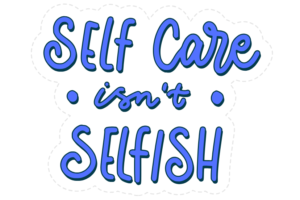
Define Personal Boundaries
Establishing clear personal boundaries is vital for building resilient relationships. Boundaries indicate what is acceptable and what is not in terms of behavior, time, and personal space.
Communicate your boundaries openly and respectfully, and be willing to listen to and respect the boundaries of others. By defining and respecting personal boundaries, you create a sense of safety and mutual respect within the relationship.
Communicate Your Needs And Limits
In addition to defining personal boundaries, it is important to communicate your needs and limits. Clearly express what you require in terms of support, time, and attention, as well as what you cannot tolerate.
Open communication about needs and limits ensures that both parties feel heard and understood. By communicating your needs and limits, you promote a balanced and healthy dynamic in the relationship.
Take Time For Self-Reflection
Building resilience in personal relationships involves regular self-reflection. Set aside time to reflect on your own thoughts, emotions, and experiences.
This self-awareness allows you to better understand your own needs and emotions, enabling you to communicate them effectively to your loved ones. Additionally, self-reflection gives you the opportunity to reflect on your behavior and make adjustments if necessary.
Manage Stress And Practice Self-Care
Managing stress and prioritizing self-care are essential for building resilience in personal relationships. Take steps to manage stress effectively and engage in activities that promote well-being and relaxation.
This could include exercise, hobbies, mindfulness practices, or seeking support from friends or professionals. By managing stress and practicing self-care, you ensure that you are emotionally available and capable of supporting the relationship.
Seek Professional Help
In some cases, building resilience in personal relationships may require professional intervention. If you find that you are facing recurring challenges or that the relationship is causing significant distress, do not hesitate to seek the help of a trained therapist or counselor.
Professional guidance can provide valuable insights and tools to navigate through difficult situations and promote the growth and resilience of the relationship.
7. Manage Expectations And Embrace Change
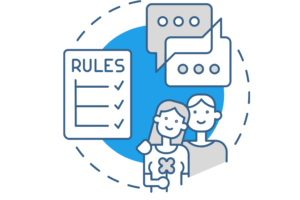
Set Realistic Expectations
Managing expectations is crucial for building resilience in personal relationships. Unrealistic or uncommunicated expectations can lead to disappointment and strain the relationship.
Take the time to discuss and align expectations with your loved ones, ensuring that they are realistic and mutually agreed upon. By setting realistic expectations, you foster a sense of trust and reduce the likelihood of misunderstandings.
Be Open To Growth And Flexibility
Personal relationships are constantly evolving, and it is important to be open to growth and flexibility. Embrace the fact that change is inevitable and approach it with a positive and open mindset.
This allows you to adapt to new circumstances and challenges, fostering resilience and strengthening the bond between individuals. By embracing growth and flexibility, you create a more adaptable and sustainable relationship.
Adapt To Changes And Challenges
Resilient relationships require the ability to adapt to changes and challenges. Whether it’s a change in circumstances, a shift in priorities, or a new obstacle, being flexible and adaptable is key.
Approach changes with a collaborative mindset and actively seek solutions together. By adapting to changes and challenges, you demonstrate your commitment to the relationship’s growth and well-being.
Celebrate And Learn From Successes And Failures
In resilient relationships, it is important to celebrate successes and learn from failures together. Take the time to acknowledge and appreciate achievements, no matter how small.
Equally important is viewing failures as learning opportunities rather than setbacks. By celebrating successes and learning from failures, you create a positive and growth-oriented dynamic within the relationship.
Adjust Goals Based On Evolving Circumstances
As personal circumstances change, it may be necessary to adjust shared goals within the relationship. Regularly review and reassess the direction of the relationship, taking into account individual aspirations and external influences.
By adjusting goals based on evolving circumstances, you ensure that the relationship remains aligned with the needs and desires of both parties.
8. Practice Forgiveness And Let Go Of Grudges

Recognize The Benefits Of Forgiveness
Forgiveness is a powerful tool for building resilience in personal relationships. Holding onto grudges and resentments can be detrimental to the emotional well-being of both parties.
By recognizing the benefits of forgiveness, such as increased emotional well-being, improved communication, and strengthened bonds, you are more likely to prioritize forgiveness in the relationship.
Seek Understanding And Empathy
Forgiveness is deeply connected to seeking understanding and empathy. Strive to understand the motivations, experiences, and emotions of the other person.
By seeking empathy and understanding, you develop compassion and a broader perspective. This allows you to let go of anger and resentment, paving the way for forgiveness and healing.
Release Negative Emotions
In order to forgive, it is essential to release negative emotions. Holding onto anger, hurt, or resentment can be toxic to both yourself and the relationship.
Find healthy ways to process and release these negative emotions, such as journaling, talking to a trusted friend, or engaging in calming activities. By releasing negative emotions, you create space for healing and growth.
Give Yourself Time To Heal
Forgiveness is a process, and healing takes time. Allow yourself the necessary time and space to heal from past hurts. This means being patient with yourself and the other person, and not rushing the process.
Healing requires acknowledging and working through pain, but it also allows for personal growth and the potential to build a stronger and more resilient relationship.
Commit To Moving Forward
When forgiveness is granted, it is important to commit to moving forward. This involves letting go of past grievances and focusing on present and future growth.
Committing to moving forward requires active communication, setting new goals, and working together to build a stronger bond. By committing to moving forward, you create a foundation of trust and resilience in the relationship.
9. Cultivate A Positive Mindset

Focus On Gratitude And Appreciation
Cultivating a positive mindset involves focusing on gratitude and appreciation. Take the time to express gratitude for the presence and contributions of your loved ones.
Celebrate the positive aspects of the relationship and acknowledge the joy and fulfillment it brings. By focusing on gratitude and appreciation, you create a positive and nurturing environment that fosters resilience.
Practice Positive Self-Talk
Positive self-talk is a powerful tool for building resilience in personal relationships. Be mindful of the language you use when talking to yourself and others.
Choose words that uplift and encourage, and avoid negative self-talk or self-criticism. By practicing positive self-talk, you boost self-esteem, enhance communication, and create a more positive atmosphere within the relationship.
Challenge Negative Thoughts
Cultivating a positive mindset also involves challenging negative thoughts. When negative thoughts arise, take a moment to evaluate their validity and consider alternative perspectives.
Ask yourself if the negative thought is based on evidence or if it is simply a result of negative self-talk. By challenging negative thoughts, you can develop a more balanced and optimistic outlook in the relationship.
Surround Yourself With Positive Influences
The company you keep influences your mindset and overall well-being. Surround yourself with positive influences, such as friends and family who uplift and inspire you. Engage in activities that bring you joy and energize you.
By surrounding yourself with positive influences, you create a supportive and resilient environment that encourages personal growth and strengthens relationships.
Embrace Optimism And Resilience
Embracing optimism and resilience means approaching challenges and setbacks with a positive mindset. Instead of viewing difficulties as insurmountable obstacles, see them as opportunities for growth and learning.
Embrace a “can-do” attitude and don’t let setbacks discourage you. By embracing optimism and resilience, you create a culture of positivity and perseverance within the relationship.
10. Invest Time And Effort Into The Relationship
Prioritize Quality Time Together
Investing time and effort into a relationship means prioritizing quality time together. Set aside dedicated time to connect and engage with your loved ones without distractions.
Quality time allows for deep conversation, shared experiences, and the strengthening of bonds. By prioritizing quality time, you demonstrate your commitment and create a solid foundation for a resilient relationship.
Engage In Shared Hobbies And Interests
Participating in shared hobbies and interests is a great way to deepen your connection and build resilience in the relationship. Find activities that you both enjoy and make it a priority to engage in them regularly.
This not only fosters a sense of camaraderie but also provides opportunities for personal growth and reinforces the shared values and experiences that strengthen the relationship.
Plan And Create Meaningful Experiences
Building resilient relationships involves planning and creating meaningful experiences together. This could include special dates, vacations, or even smaller moments such as shared meals or walks.
By intentionally planning and creating meaningful experiences, you create lasting memories and deepen your emotional connection. These shared experiences become the foundation from which you can draw strength during challenging times.
Support Each Other’s Goals And Dreams
Investing time and effort into a relationship means supporting each other’s goals and dreams. Encourage and champion the aspirations and passions of your loved ones.
By providing unwavering support, you foster a sense of safety and motivation within the relationship. Supporting each other’s goals and dreams allows for personal growth and resilience, both individually and as a couple.
Conclusion: Building Resilience In Personal Relationships
Building resilience in personal relationships is an ongoing process that requires continuous effort and commitment. Don’t take the relationship for granted or become complacent.
Continuously work on the relationship by nurturing the emotional connection, addressing challenges, and striving for personal and shared growth. By maintaining consistent effort, you create a thriving and resilient bond that can withstand the tests of time.
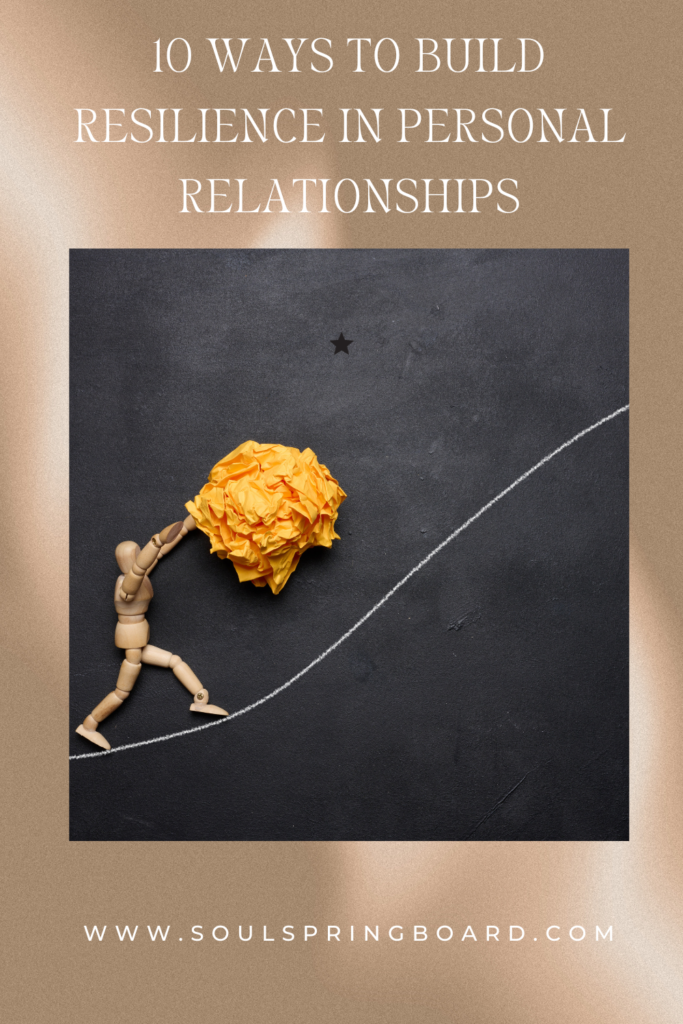





Comments are closed.